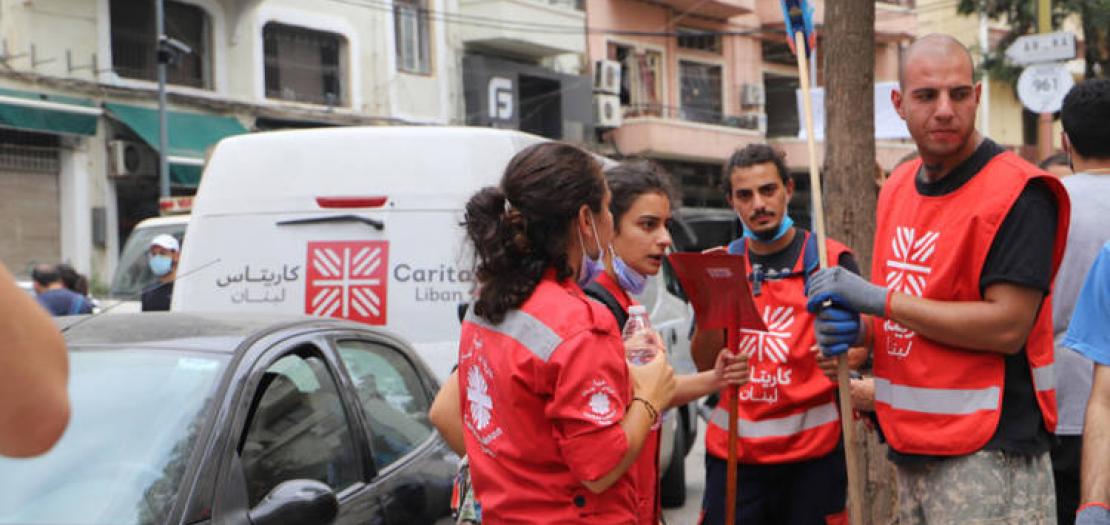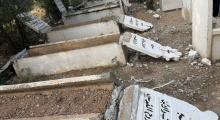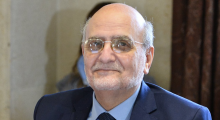Issued by the Catholic Center for Studies and Media - Jordan. Editor-in-chief Fr. Rif'at Bader - موقع أبونا abouna.org

In the six months since the explosions that rocked Beirut - sending shockwaves across the city, killing over 200 people, and leaving more than 6,000 injured - Lebanon has faced a multi-faceted crisis: a rapid increase in Covid-19 cases, rising prices and increasing levels of poverty. Yet, despite the challenges, the local community have come together to start rebuilding and healing.
In the months following the explosion, UK aid agency CAFOD worked alongside local Lebanese organizations to help begin the rebuilding projects.
This included working with local aid agency Caritas Lebanon to distribute over 150,000 hot meals and food packages to help families in need. Youth volunteers worked on a project to renovate nearly 700 houses and assessed the damage on over 1,000 more.
While women's organisation Association Nadjeh distributed cash to over 3,000 households affected by the blast. One of the residents to receive support from this help was Nohad Al-Mir, a Secretary who lives Karantina, a neighbourhood in Beirut that was severely damaged by the blast. She said: "In every other way, that Tuesday last August was unremarkable. Dusk was just settling over my neighbourhood and I had visited the store to get some household items.
"Suddenly, I heard the sound of a blast. The glass in the store began to shake. I ran away but I could not pass the road. So, I tried a different route, but debris from buildings blocked the way, and I was shocked at the blood that stained the pavements.
"When I finally arrived home, I found my house as it still stands today, in ruins. I'm now living in my brother's house with his family, but I come daily to check on my house. Association Najdeh provided me with financial assistance that will help me to buy a refrigerator and gas. The foundations of a new start, and for that, I am very glad."
Another innovative project was a self-care hub, set up by local organisation House of Peace, which has an in-house psychologist to support aid workers who experienced trauma in the blast and during the subsequent emergency response efforts. This support helps them to effectively deal with trauma and develop strategies for continuing to work well in challenging circumstances.







